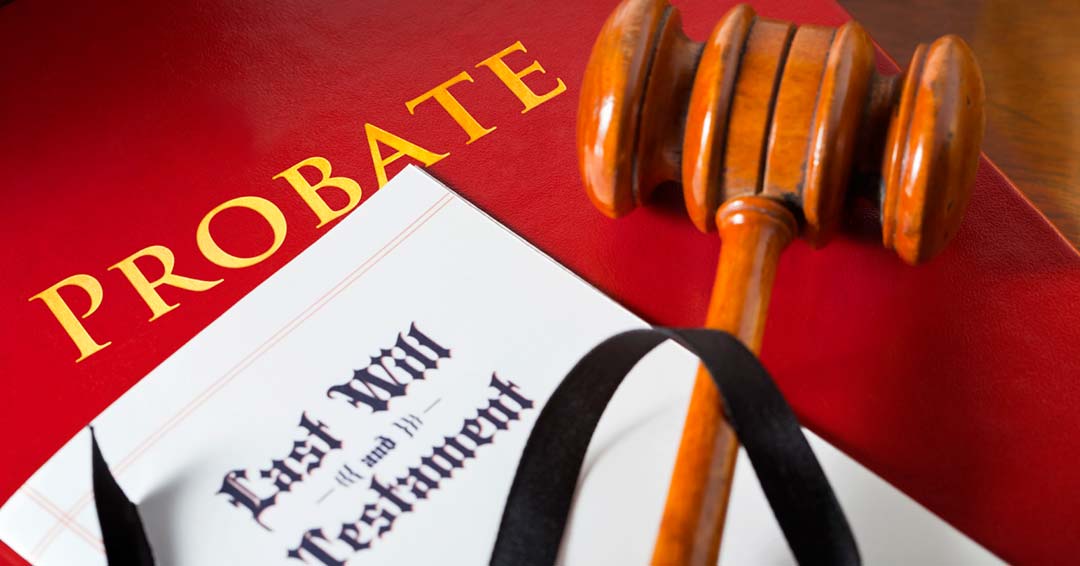Wills, probate cases and probate

Losing a loved one is a difficult time for your family, relatives, and friends. In addition, survivors frequently have to find out how to transfer or inherit the assets of the person who died. The assets that a person leaves when they die are called “the deceased’s estate.” The “deceased” is the person who passed away. Your “estate” is the assets you had when you died.
Generally, you have to go to court to transfer or inherit property from a person who has passed away. And the process in court to transfer the assets of a person who died is very complicated. However, sometimes the family or relatives of the deceased can transfer the assets without going to court.
It is not always easy to know if you have to go to court or if you are qualified to use a different procedure. There are many new terms to know for these types of cases. Click for a short list of wordsPDF file type icon related to wills and probate, and what they mean.
This section will provide general information to help you understand your options, but we still recommend that you speak with an attorney for specific answers about your situation. Generally, you will be able to pay your attorney’s fees out of the proceeds of the case.
To find a lawyer, call the lawyer referral service at your local bar association. Click for help finding a lawyer referral service in Probate Lawyer Layton Utah.
What are the different ways that an estate can be transferred after someone dies?
It depends. There are a few ways to do this without going to probate court.
Some common examples are:
If a particular asset (such as a retirement plan, life insurance policy, or bank account) already has a named beneficiary, that asset goes to the beneficiary (or beneficiaries, if there are more than one) without going to court.
If a home is owned by two or more people in joint tenancy, the other owners have a right of survivorship, which generally means they inherit all of the property in their name.
Real property can sometimes be transferred without going to court, with a death transfer deed (also called a beneficiary deed).
Assets in living trusts can be transferred without going to court.
There are some simplified procedures for estates worth less than $ 166,250.
Any part of the estate that cannot be transferred more informally will likely have to be transferred in probate court. How the estate is transferred depends partially on whether the decedent died with or without a will.
What is a probate case?
A probate case is a case that is started in court to:
Decide if a will exists and is valid;
Determine who are the heirs or beneficiaries of the deceased;
Determine how much the deceased’s assets are worth;
Take care of the financial responsibilities of the deceased; and
Transfer the assets of the deceased to the heirs or beneficiaries.
In a probate case, the court appoints an executor (if there is a will) or an administrator (if there is no will) as a personal representative, to collect the assets, pay debts and expenses, and then distribute the remainder of the estate. succession to beneficiaries (those who have the legal right to inherit), all under the supervision of the court. The case can last between 9 and 18 months, and sometimes even longer.
First steps in dealing with an estate when a person dies
Determine who will be the representative of the estate.
The first thing you need to do is determine who will be the representative of the estate. If there is a will, the representative is the executor named in the will.
If there is no will, it depends on whether the case needs to be heard in probate court or not.
If the estate is small or if it can be transferred to others informally through simplified procedures, a close relative, such as the person who will inherit the majority of what is left of the estate, may be the informal representative of the estate.
If the case has to go through a formal probate case, the court will appoint an administrator to be the probate representative.
If someone dies without a will, the law includes a priority list that indicates who should be the trustee. You can find the full list in Probate Code §8461External link icon . As you might imagine, the surviving spouse or domestic partner is first on the list, with children second, grandchildren third, and so on.
Sometimes it is not clear who should be the representative of the estate, such as if the will does not name an executor and more than one person has priority, or if there is a disagreement between the heirs about who should be the representative, or if the person with the highest priority has a conflict of interest, and many more examples. Talk to a lawyer if this might be the case for you.
If you are the representative of the estate, please note that:
You have to be reliable, highly organized, and act diligently and responsibly.
You should always stay informed about your responsibilities, keep good records, and communicate with everyone involved.
Until the assets are transferred to the correct beneficiary, you are the person responsible for managing them in everyone’s best interest. This is called a “fiduciary duty.”
You have a duty to act responsibly and honestly. If you breach this duty, you may end up being personally liable for any loss in estate value.

-3.png?width=698&height=393&name=blog%20image%20Salima%20(1)-3.png)